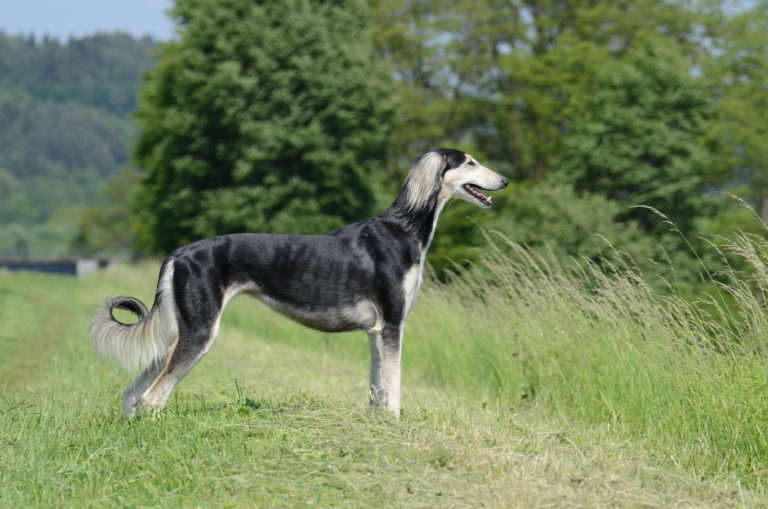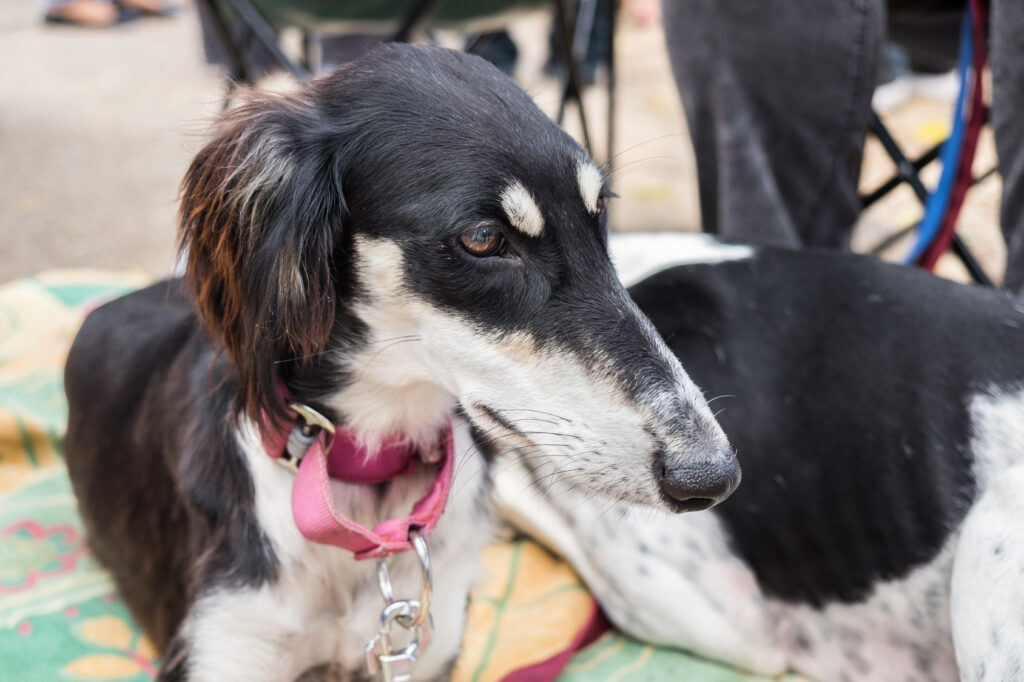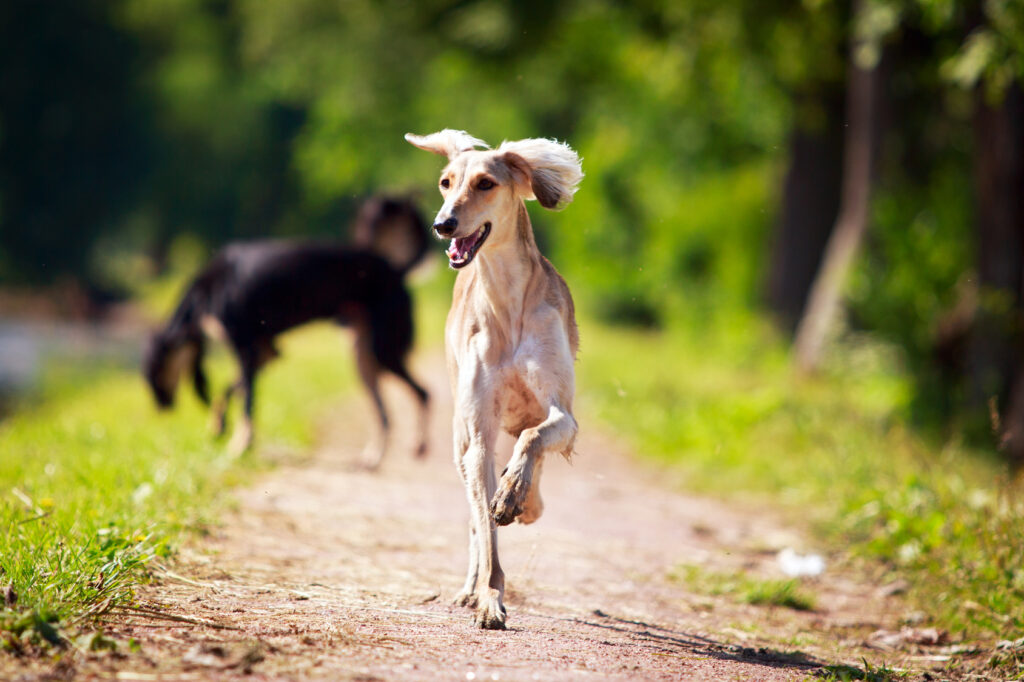It’s well known that a dog’s food is crucial to its health. But what food is suitable for this unique breed? The Saluki, like all domestic dogs, descends from wolves and is naturally a carnivore – a meat-eater. High-quality meat (e.g. muscle meat) should make up the majority of its diet. However, meat alone is not sufficient. To provide the dog with all the necessary nutrients and minerals, eggs, quark, vegetables, cooked rice or pasta, and animal fats should also be included.
Can I Prepare the Food Myself?
If you decide to prepare your dog’s meals yourself, you must understand the correct ratios. Factors such as size, age, weight, and activity level of the dog play a role. Consult your breeder or vet to create an optimal diet plan for your Saluki. In some cases, supplementing with minerals and vitamins, such as with a commercial supplementary food, may be necessary. Regular weight checks are essential to determine if your dog is receiving adequate and healthy nutrition. If you notice significant weight fluctuations, discuss the causes and potential dietary adjustments with your vet. Other serious symptoms of poor nutrition can include reduced vitality or changes in the fur structure.
Home-cooked, BARFing, or Ready-made Food?
Whatever diet you choose, it’s essential that the energy and nutrient needs of your dog are met. Each feeding method has its pros and cons. Just like their owners, dogs are individuals, and there is no food that fits all equally well. By paying attention to the ingredients, you can also provide your dog with a healthy diet using commercial wet or dry food. Ensure that the food does not contain too much grain. Avoid sugar, chemical preservatives, and artificial flavour enhancers.
More Tips for a Healthy Saluki Diet
Not only the content of the food but also the way meal times are managed is crucial for your Saluki’s health. Unlike drinking water, which should always be available, food should be given at fixed times (approx. one or two meals per day). After a meal, the food bowl should be cleaned and put away. Avoid strenuous activities after eating. Your Saluki should rest for at least one to two hours after a meal time before returning to running. This can also prevent the dreaded gastric torsion, which many owners of large greyhounds fear.


